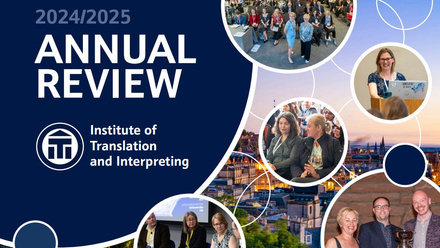Is SE England set to become a cold spot for language learning?
ITI's Chief Executive has written to senior leaders at the University of Kent expressing the Institute's deep concerns over their plans to close modern languages courses.
***Update: 24 March 2024***
The University of Kent has contacted ITI to share an un update on the consultation response and a link to the published statement setting out their decision. While acknowledging that some very tough decisions have had to be made, we are relieved to note that modern languages will continue to be taught at the University of Kent.
The Institute of Translation and Interpreting (ITI) has been made aware of plans to phase out the courses in modern languages currently taught in the School of Cultures and Languages (SCL) in favour of increasing provision in subject such as law, business and computing. Based on the information currently available, we wish to register our serious concerns about the potential loss of degree-level courses in the southeast of England and the harm that this could cause within the languages sector.
We note that the University of Kent has an enviable reputation in terms of the performance of its languages and linguistics departments, and also that the School of Cultures and Languages provides a valuable service to the region, ensuring that local students have access to core arts and humanities subjects. Such provision is key to ensuring equal opportunities for everyone.
If the University proceeds with the proposal to withdraw from teaching modern languages, then the region risks becoming a cold spot for language learning. This would have a particularly harmful impact on young people from deprived backgrounds who may have the aptitude and desire to study languages but not have the economic means to study elsewhere in the UK. Given that the study of languages is an integral part of the university’s Access and Participation Plan this would seem to be a retrograde and highly damaging step.
While we can understand that decision-makers are seeking to equip students to play an effective role in the UK’s economic development it is short-sighted to believe that this is only achieved by focusing on business subjects. In a closely interconnected world, the ability to communicate in different languages has become increasingly important for the globally integrated business community.
Educating for the Modern World, a CBI/Pearson report from November 2019, notes that “for the government vision of ‘Global Britain’ to be delivered, businesses need people who can communicate with customers and suppliers around the world.” And Aston University’s LO-C 30 research on 415 UK SMEs revealed that companies making use of language capabilities are 30% more successful in exporting than those who do not. Failing to invest in language teaching therefore weakens the UK’s opportunity for sustainable economic growth. This point is well made in Languages for the Future: The foreign languages the United Kingdom needs to become a truly global nation, a report published by the British Council in 2017 which states:
“But all should recognise that the UK’s language deficit remains a threat to our overall international competitiveness, influence and standing in the world, as well as to our citizens’ ability to play a meaningful role in the global economy and in an increasingly networked world. We have now reached a critical juncture where investment in upgrading the UK’s language skills, which give unparalleled access to cultural knowledge and understanding, will pay important dividends.”
There are, of course, many other benefits arising from language learning beyond the obvious acquisition of linguistic skills and intercultural competence. Studies have shown that many other skills accompany language learning, including improved literacy in the student’s native language as well as increased mental agility, creative originality and problem-solving ability; all of these soft skills are also valued by businesses and therefore enhance a student’s employability.
“The clear value of language learning to the individual, to the economy and to the intellectual and cultural life of the nation needs much greater appreciation. The evidence that language graduates are of value to companies, as demonstrated by the Born Global project, should be understood by universities, by teachers and by students themselves, as young people prepare to build careers and live fulfilling lives in today’s multi-national and multi-lingual, connected world.” Born Global: Implications for Higher Education (British Academy 2016)
Furthermore we would also note that linguists play a vital role in the education of future generations of school students. Unless universities commit to ensuring a pipeline of language graduates there will be consequential shortages of skilled and capable linguists who can take up teaching roles in the country’s secondary schools, leading to an inevitable, and highly damaging, decline in language capacity, which will in turn impoverish the UK’s intellectual, cultural and economic prospects.
The current proposal to withdraw support for languages degrees is therefore incomprehensible, and so we strongly urge the senior leadership team to reconsider their approach to ensure that the south east of England does not become a cold spot for language learning.
Yours sincerely,
Sara Crofts
Chief Executive






